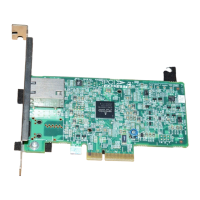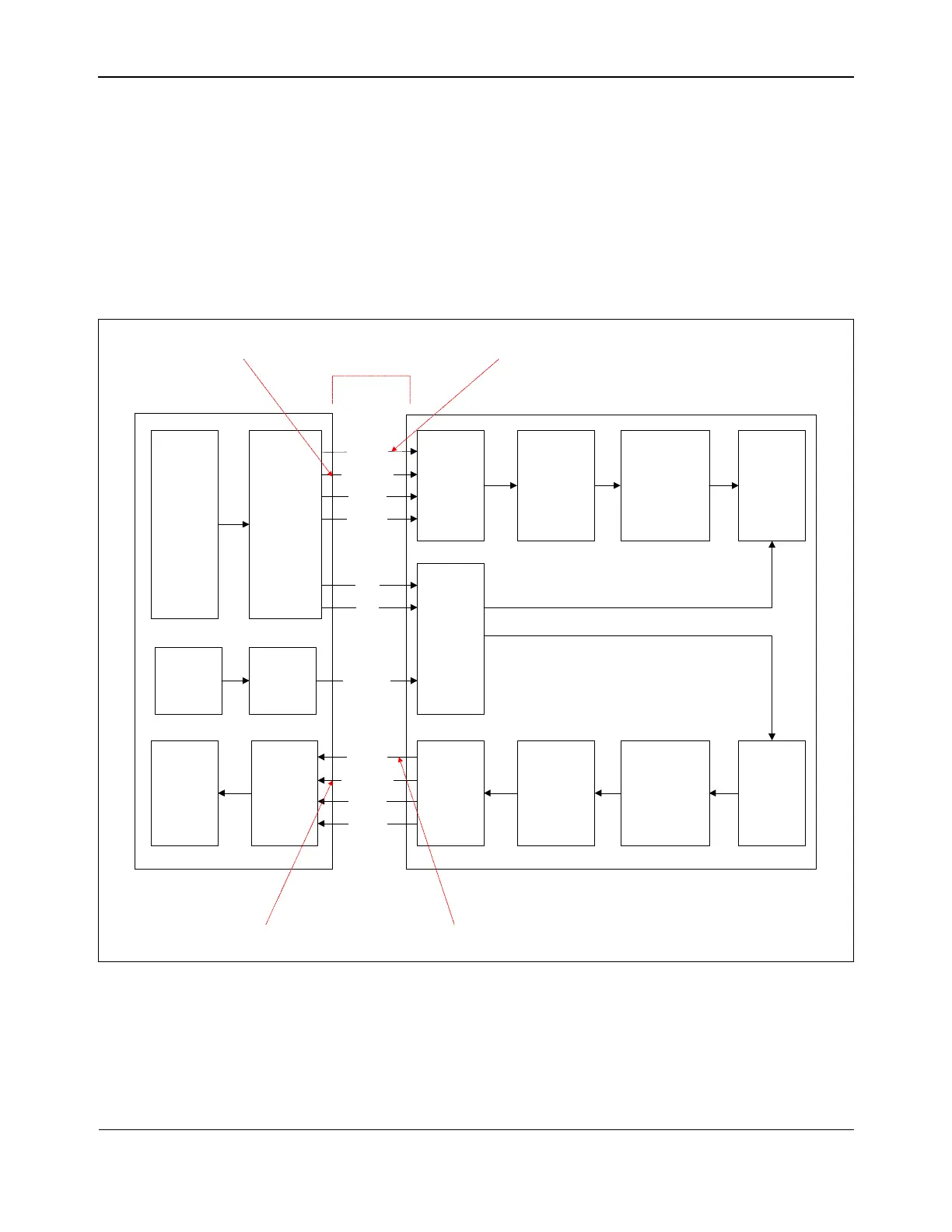PHY ControlBCM5718 Programmer’s Guide
Broadcom®
January 29, 2016 • 5718-PG108-R Page 65
Pulse Amplitude Modulated Symbol (PAM5) encoding is leveraged for Gigabit Ethernet wire transmissions.
PAM5 uses five encoding levels: –2, –1, 0, 1, and 2. Four symbols are transmitted in parallel on the four twisted-
wire pairs. The four symbols create a code group (an eight-bit octet). The process of creating the code-group is
called 4D-PAM5. Essentially, eight data bits are represented by four symbols. Table 40-1 in the IEEE 802.3ab
specification shows the data bit to symbol mapping. The code group representation is also referred to as a
quartet of quinary symbols {TA, TB, TC, TD}. The modulation rate on the wire is measured at 125 Mbaud. The
resultant bandwidth is calculated by multiplying 125 MHz by eight bits, for
1000 Mbps wire speed.
Figure 9: GMII Block
RX
I/O
RXD /8
RX_CLK1
RX_ER
RX_DV
TX
I/O
TXD /8
TX_CLK0
TX_ER
TX_EN
Media
Status
I/O
COL
CRS
LNKRDY
RX Media
Access
Mgmnt
RX
MAC
Rx Data
Decapsulation
TX Media
Access
Mgmnt
TX
MAC
Tx Data
Encapsulation
MAC Sublayer
Physical Layer
RX
I/O
Symbol
Decoder
LED
Control
TX
I/O
Symbol
Encoder
125-MHz Ref Clock 8-bit Data Path
LED
I/O
8-bit Data Path125-MHz Ref Clock
GMII

